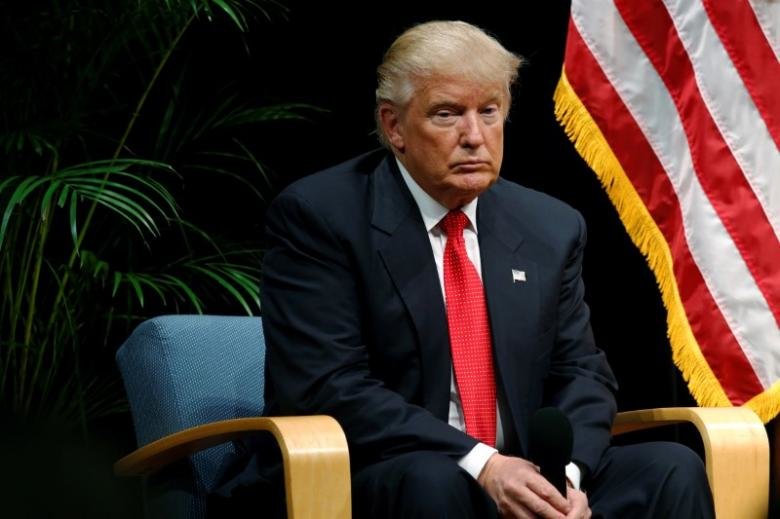U.S. faces isolation in global community by sanctioning Iran

TEHRAN -The recent statement of the Iranian president Hassan Rouhani regarding isolation of the U.S. due to its unilateral withdrawal from the Iran nuclear deal, also known as JCPOA, seems to become more relevant with every passing day as obvious from the actions of BRICS, EU and other countries like Turkey.
The crux of 2018 BRICS Summit was to counter the U.S. unilateralism by switching to an open world economy and a multilateral trade system that is currently facing unprecedented threats. According to Chinese president Xi Jinping, the U.S. administration has abused international law and the norms governing international relations with its unilateral withdrawal from JCPOA, thus there is a need for developing new types of international relations so that the hegemony of the so-called ‘superpower’ can be contained. Further Xi Jinping stressed on the fact that it is intolerable to recognize energy blockades, sanctions, and economic warfare through USA’s unilateral decisions.
For balancing the world order, the BRICS should be upgraded to BRICS Plus, the term itself proposed by China in 2017 at the Xiamen Summit which is aimed at developing mutually beneficial relations with all developing countries and has a transcontinental scope. According to Wang Yi, who served as a China's deputy foreign minister, BRICS Plus is an integration roadmap with global significance and attack on Iran is not only a blow to BRICS Plus but to the whole global south. It indicates that there are very slim chances of China succumbing to the U.S. pressure on Iran.
The increasing consent among eastern nations is isolating the U.S. in this part of the world. It is obvious from the response by Russia and China regarding U.S. sanctions on Iran as they have refused to suspend their trade with Iran. Russia and China are supporting Iran’s nuclear program and aerospace industries and they have also helped Syrian president Bashar-al Assad, a close ally of Iran in the region, to remain in power.
China is Iran’s largest crude oil importer and because of Iran’s crucial role in Belt and Road Initiative (BRI), China cannot let Iran to lose its influence into the region. Iran’s high chances of joining Shanghai Corporation Organization (SCO), deal with Eurasian Economic Union (EAEU), and as a member of International North–South Transport Corridor (INSTC) provides it with a much broader importance in the affairs governing eastern part of the world.
In addition to the economic and strategic importance of Iran, its military cooperation is vital in maintaining the security and peace in the region. According to TASS news agency, intelligence officers from Russia, China, Pakistan, and Iran recently conducted a secret meeting in Islamabad to formulate a strategy for countering the rise of ISIS in Afghanistan. It has come as an embarrassment for Washington and Kabul because of their failure in finding a tangible solution to the Afghan problem.
Thus a consensus on Afghan problem among eastern countries has created a wide gap between the interests of east and US, and once again Iran has shown its importance on a global stage.
Eastern powers are not alone in criticizing Iranian sanctions but the U.S. is also facing the European backlash, as the French Finance Minister Bruno Le Marie recently stated that they are not obliged to act as a vassal of the U.S. and they have a right to defend their economic sovereignty. He proposed a strategy to nullify U.S. sanctions on EU firms in accordance with EU regulations passed in 1996. This first link in the proposal is to set up a European finance house that will facilitate Euro denominated transactions with Iran. The French president also showed respect for Iran due to its commitment to JCPOA when he said: “As long as the Iranians respect their commitments, the EU will, of course, stick to the agreement of which it was an architect.”
Jean-Yves Drian, the French minister of foreign affairs, described the U.S. sanctions as unacceptable, thus European businesses need not to comply with U.S. foreign policy diktats.
The recent meeting between Iranian foreign minister Mohammad Javad Zaffar and his European counterparts in which he advised them to take practical steps without any preconditions regarding business deals with Iran was significant. The German finance minister Peter Altnaier issued a statement to help affected firms of Germany through legal and other means in order to ensure the continuation of business with Iran. Nathalie Tocc, the Deputy Director of Istituto Affari Internazionali Italy, criticized the unilateral withdrawal of U.S. from JCPOA and said it is an unjustified betrayal of Europe and thus needs proportionate reprisals. David Thorne, the former U.S. ambassador to Italy, also expressed his concerns regarding the rifts that may result due to U.S. sanctions on Iran.
The 2013 mass popular unrest in Turkey, 2016 failed coup attempt of Erdogan in addition to an alliance between Syrian and Turkish Kurds has convinced Ankara to review its status as a NATO member. The recent decision of the U.S. to sanction Turkish interior minister and justice minister has proved to be a poisoned cherry on rotten cake. Turkey is perceiving disturbance from the West and an opportunity for development in the East as China is trying to fasten Ankara into its Belt and Road Initiative in addition to improving relations with Russia and Iran.
In a recent August 12, 2018 speech Erdogan said that the economic warfare of U.S. may trigger a geopolitical shift in NATO alliance and according to CNN security analyst Samantha Vinograd, Turkey is constantly getting closer to Iran on every front which is good for Tehran and bad for the Western empire.
The writer is a Kashmir-based student and researcher. He can be reached at mudasir.shk01@gmail.com
